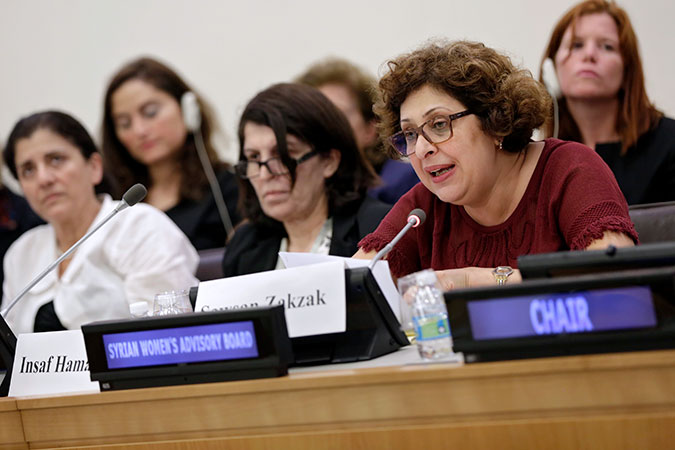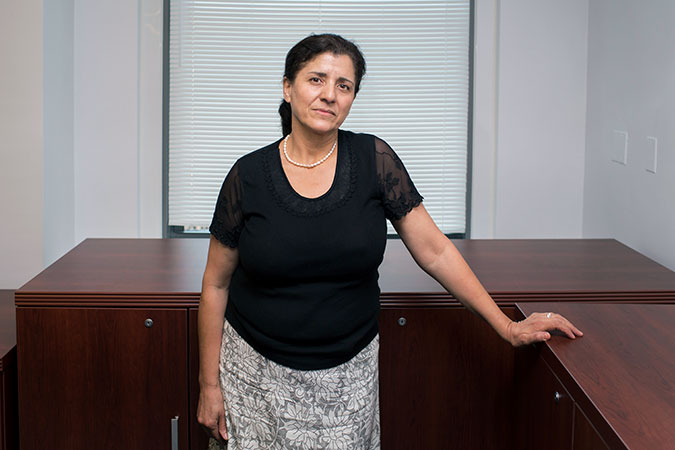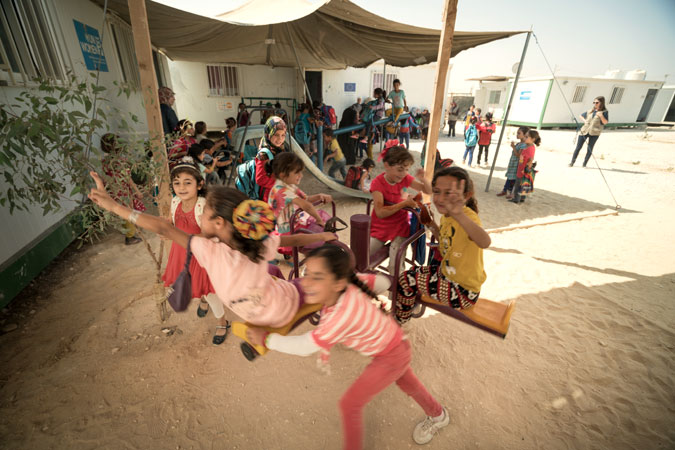UN Women Deputy Executive Director Lakshmi Puri at Helsinki Conference on Syria
Date:
Nearly six years into the Syria crisis, 13.5 million Syrians are in need of life-saving humanitarian assistance inside the country and more than 4.8 million registered Syrian refugees are living in neighbouring countries. Among them, women and girls remain disproportionately and differently affected, at higher risk of gender-based violence. Women are also at risk of missing out on livelihood and employment options created for refugees, unless targeted provisions are made.
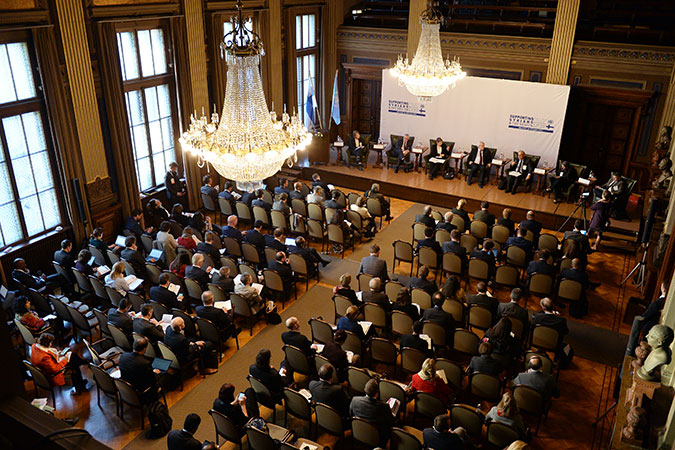
The Syria 2017 Humanitarian Needs Overview identified child marriage as a top protection concern in 85 per cent of sub-districts, closely followed by domestic violence (71 per cent) and sexual violence (51 per cent) [1]. UN Women research shows that in Jordan’s Za’atari refugee camp, where 50 per cent of the adult population are women, they make up only 24 per cent of the recipients of cash-for-work schemes [2].
UN Women Deputy Executive Director Lakshmi Puri will travel to Finland this week to participate at the Helsinki Conference on Supporting Syrians and the Region on 24 January, which will convene government representatives, UN agencies and humanitarian actors to discuss the humanitarian priorities, development challenges and opportunities to build resilience in Syria and its neighbouring countries. The conference will also launch the Regional Refugee and Resilience Plan 2017-2018, which sets out the framework within which the international community is expected to respond to the ongoing crisis.
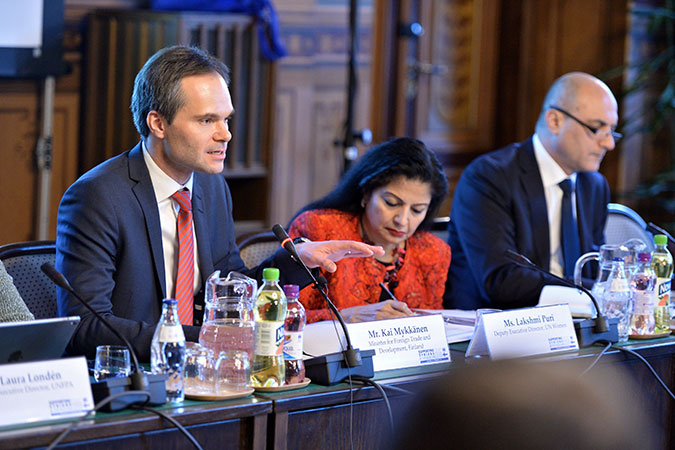
Ms. Puri is moderating and co-chairing, along with Kai Mykkänen, Minister for Foreign Trade and Development of Finland, a high-level panel during the conference proceedings, organized by UN Women, UNDP and UNFPA, “Gender Equality in Action: Responding to the needs and building resilience for women and girls”. She will be joined by Ali Sindi, Minister of Planning, The Kurdistan Regional Government; Michelle Cameron, Ambassador of Canada to the Lebanese Republic; Laura Londen, Deputy Executive Director of UNFPA; Gry Larsen, Secretary General of CARE Norway; Sawsan Zakzak, representative of the Women’s Advisory Board to the UN Special Envoy for Syria; and Hivin Kako, Executive Director of Bihar Relief, as panellists.
The event will highlight the impact of the Syria crisis on women and girls; take stock of the international commitments made at the World Humanitarian Summit to put women and girls at centre of decision-making and humanitarian action; and examine the achievements, gaps and best practices in gender-responsive humanitarian and resilience programming.
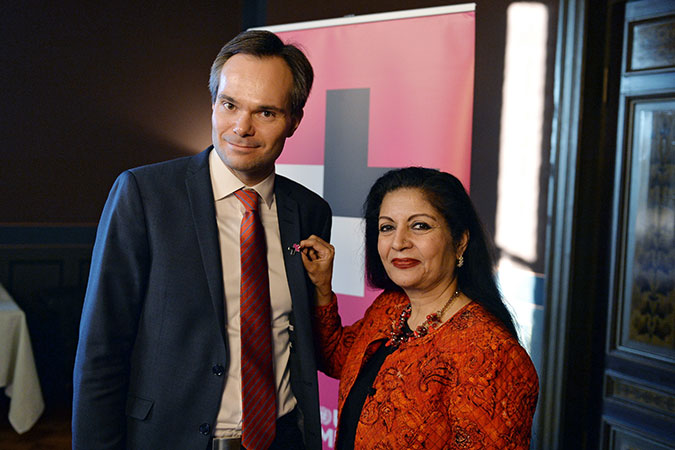
With the crisis growing more protracted, men and women need access to protection, shelter, food and services, but they also need access to jobs and hopes for the future, which calls for a different approach—a resilience-based response. The panel will provide key partners an opportunity to discuss how to address the pending gaps and challenges so that women and girls equally participate in and benefit from humanitarian planning, programming and financing. This entails ensuring safe routes of passage, providing safe spaces when they arrive in host communities or camps, and protection from gender-based violence, along with opportunities for education and livelihood.
Highlights of UN Women’s work in response to the Syria crisis:
Women of Syria, a strong constituency for peace
At a panel event on the sidelines of UN Women Executive Board session at the UN Headquarters in New York on 31 August, 2016, members of the first-ever Syrian Women’s Advisory Board shared their experience and recommendations for lasting peace. Coming from diverse and sometimes opposing backgrounds, the representatives of the Women’s Advisory Board have succeeded to transcend their differences and build consensus on many issues that remain contentious for the negotiating delegations. Read more»
From where I stand: Monira Hwaijeh
Monira Hwaijeh, 58, is one of the 12 members of the Syrian Women’s Advisory Board (WAB), established by the UN Special Envoy for Syria earlier this year. Coming from diverse backgrounds, the independent civil society representatives that make up WAB, consult regularly with the Special Envoy and provide recommendations to assist the peace talks. Read more»
A snapshot of UN Women’s work, from humanitarian response to safe spaces and livelihood trainings
During the ongoing conflict in Syria, UN Women has been actively working to highlight the distinct needs of women and girls, including protection and resilience, and promote their role as meaningful participants in conflict-resolution, peacebuilding and eventual recovery and development. Read more»
Cash-for-work programme empowers Syrian refugees
More than 5,000 Syrian women and girls visit ‘Oases’ safe spaces in the Za’atari camp per month, and several hundred have independently earned incomes through UN Women’s work programme in Jordan. See more»
Notes
[1] http://www.unfpa.org.lb/Documents/Situation-Analysis-of-the-Youth-in-Lebanon-Affecte.aspx
[2] UN Women. 2016. “Restoring dignity and building resilience”.
